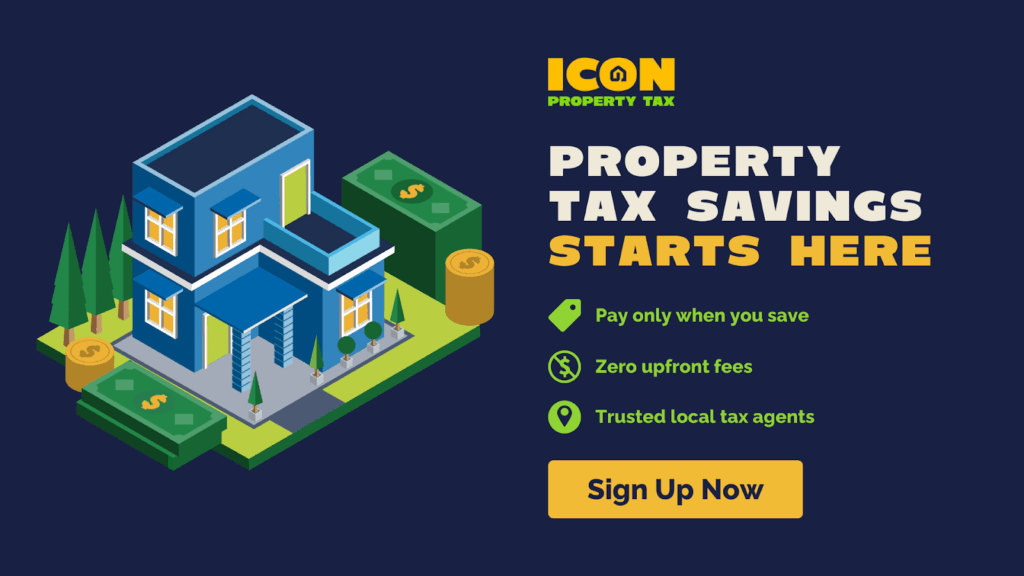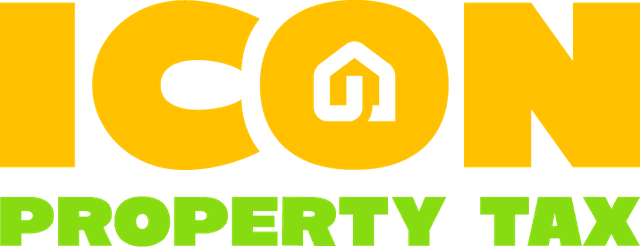Will County Property Tax Overview: Rates, Assessments, And Billing Cycles
July 26, 2025
Key Takeaways:
- Rate Formation: Tax rates are driven by local budget needs and applied uniformly across assessed property values.
- Assessment Impact: Your tax bill is largely influenced by how your property is assessed – not the market rate.
- Appeal Opportunity: Property owners have legal options to appeal over-assessments and potentially lower their tax bills.
At Icon, we’ve helped thousands of property owners across Illinois reduce their property tax burdens – and we don’t just know the system, we challenge it. Backed by proven results, deep expertise, and decades of combined experience, we specialize in turning unfair assessments into real savings. Whether working with a homeowner or a commercial investor, our track record of successful appeals speaks for itself.
Will County’s property tax system is complex, layered, and often misunderstood. Many property owners don’t realize how much control they have – or how much money they leave on the table. Between fluctuating tax rates, confusing assessment notices, and hard-to-navigate appeal processes, overpaying without ever knowing it is easy.
That’s why it’s critical to understand how the system works. In this piece, we will discuss Will County property taxes: how rates are determined, how assessments are calculated, and how the billing cycle flows – so you can stay informed and proactive about what you owe.
How Property Tax Rates Are Determined In Will County
Property tax rates in Will County are influenced by a combination of local government budget needs and the total assessed value of all properties within a taxing district. The process starts when taxing bodies – such as school districts, municipalities, and park districts – submit their annual budget requirements. These budgets determine how much revenue needs to be collected through property taxes.
To calculate your tax rate, the county uses a formula based on the total levy amount divided by the total equalized assessed value (EAV) of all properties in the district. This calculation results in a tax rate – typically expressed as a percentage or per $100 of assessed value.
Importantly, you don’t have control over the tax rate itself – it’s based on collective local needs. However, you can control the assessed value of your property, which is why regular reviews and potential appeals are so critical.
Will County’s tax rates vary significantly depending on your location and which taxing bodies govern your property. For example, properties within specific school or fire protection districts may experience higher rates. This is one reason homeowners and businesses in Will County work with firms like Icon, to ensure their assessments are fair and accurate, which directly impacts how much they pay in property taxes.

Understanding Property Tax Assessments
In Will County, the property tax you owe starts with the assessed value of your property. This value is determined by the township assessor and is meant to reflect a percentage of your property’s market value. For residential properties, the standard level of assessment is 33.33% of fair market value, although that number can be adjusted based on various factors.
The Assessment Process
Each township assessor in Will County reviews property data – such as lot size, home size, condition, and location – to estimate the market value. Adjustments may be made based on recent sales of comparable properties or updates to your home.
After the initial assessment, the value is multiplied by a state equalization factor, applied uniformly across the county to ensure fairness, and then adjusted by any exemptions you’re eligible for (such as the General Homestead or Senior Citizen Exemption). The final result is the equalized assessed value (EAV), which is used to calculate your tax bill.
When Assessments Happen
Will County follows a triennial assessment cycle – meaning your property is reassessed every three years unless the property’s improvements (or damage) trigger an update. Assessment notices are mailed annually, and that’s your opportunity to review and potentially appeal the valuation.
Why It Matters
Overvaluation can lead to inflated taxes because your property tax bill is directly tied to the assessed value. That’s where Icon Property Tax steps in. We help ensure assessments are based on accurate and fair property data and guide clients through the appeal process when necessary.

The Property Tax Billing Cycle In Will County
Understanding the property tax billing cycle in Will County can help you stay ahead of deadlines and avoid late penalties. The billing process is structured and follows a consistent annual timeline.
When Tax Bills Are Issued
In Will County, property tax bills are typically mailed out in May each year. The bill is split into two installments, with the first installment generally due in early June and the second installment due around early September.
This installment structure gives property owners some flexibility in planning their payments, though both installments represent a portion of the total tax obligation for the year.
Payment Methods And Penalties
Will County offers several convenient ways to pay your property taxes: online, by mail, in person at the Treasurer’s Office, or through participating banks. If a payment is missed or delayed, late fees begin to accrue, and after a specific period, your taxes may be sold at the annual tax sale.
Staying On Top Of Your Bill
If you have a mortgage, your lender may escrow your taxes and pay them on your behalf, but it’s still your responsibility to ensure they’re paid on time and in full. It’s a good idea to verify payment status with the Will County Treasurer’s Office or through their online portal.
Appealing Your Property Tax Assessment
If you believe your property in Will County has been over-assessed, you have the legal right to appeal. Filing an appeal can result in a lower assessed value, significantly reducing your tax bill.
When and How to Appeal
Assessment appeal deadlines vary by township but generally fall within 30 days of the assessment notice being published. Depending on the process stage, you must file your appeal with the Will County Board of Review or your local township assessor.
Appeals can be based on:
- Incorrect property characteristics (square footage, number of rooms, etc.)
- Comparable properties being assessed at lower values
- Recent market sales indicate a lower fair market value
To make a strong case, you’ll need supporting documentation – such as appraisals, property records, or photos.
While you can file an appeal on your own, many property owners choose to work with tax experts who understand the system, timelines, and data needed to present a compelling argument. At Icon Property Tax, we specialize in handling appeals in Will County and ensure our clients have the best chance at reducing their assessments.
Our team evaluates your assessment, gathers market evidence, and submits all required documents, maximizing your potential for savings while minimizing your time and stress.
How Icon Helps Will County Property Owners
At Icon, we understand the complexity of the Will County property tax system – and we’re here to make it manageable. Our mission is to help property owners reduce their tax burden by ensuring fair assessments and identifying every opportunity for savings.
Expert Assessment Reviews
We start by conducting a detailed analysis of your property’s assessment compared to similar properties in your area. If there are inconsistencies or signs of overvaluation, we prepare a strategy to challenge it.

End-to-End Appeal Support
Navigating the appeal process in Will County can be overwhelming. Icon handles everything – from filing the appeal paperwork to presenting evidence to the Board of Review – ensuring your case is presented clearly and professionally.
Local Knowledge, Proven Results
We’ve worked with thousands of homeowners, investors, and businesses throughout Will County. Our knowledge of local assessment patterns, township trends, and appeal cycles allows us to act quickly and effectively.
Whether you’re facing your first tax bill or dealing with years of over-assessment, Icon Property Tax is ready to step in as your advocate. We don’t just manage the process – we maximize your potential for long-term savings.
Final Thoughts
Property taxes in Will County can feel complex – but understanding how they work empowers you to take control. From how tax rates are set, how your property is assessed, and the timing of billing and payments, each piece of the process impacts your bottom line.
The key takeaway? While you can’t control tax rates, you can challenge unfair assessments and stay proactive about your property’s tax status. Whether you’re a homeowner looking to lower your tax bill or a commercial property owner managing significant assets, staying informed is the first step.
At Icon Property Tax, we’re committed to helping Will County property owners navigate the system clearly and confidently. If you suspect you’re paying more than you should, don’t wait – reach out and let us show you how much you could save.
Frequently Asked Questions About Will County Property Tax
What is the difference between assessed value and market value in Will County?
Market value refers to the price a property would sell for in an open market, while assessed value is a percentage of that amount used for tax purposes – typically one-third in Will County.
Does Will County reassess properties after renovations or additions?
Yes. Significant property improvements like room additions or major remodels often trigger a reassessment to reflect the increased market value.
Can property taxes in Will County increase even if my home’s value stays the same?
Yes. If local taxing bodies increase their levies or the equalization factor changes, your tax bill can rise even without an increase in your home’s assessed value.
How are tax exemptions applied in Will County property taxes?
Eligible homeowners must apply through the Supervisor of Assessments to receive exemptions such as the General Homestead, Senior Citizen, or Disability exemptions. These lower your taxable value.
Do renters in Will County pay property taxes indirectly?
Yes. While renters don’t pay property tax directly, landlords often factor those costs into the monthly rent.
What happens if I miss the property tax payment deadline in Will County?
Late payments incur penalties, and prolonged non-payment can result in your taxes being sold at the annual tax sale, placing your property at risk.
Is agricultural property taxed differently in Will County?
Yes. Farmland is assessed based on its agricultural use value rather than market value, often resulting in lower property taxes than residential or commercial properties.
Can property tax rates vary within the same city in Will County?
Absolutely. Tax rates differ depending on which school districts, municipalities, and special service areas your property falls under – even within the same city.
Is there a way to estimate my Will County property taxes before receiving the bill?
Yes. Property owners can use the Will County Treasurer’s online tax calculator by inputting their assessed value and applicable exemptions.
How long does a property tax appeal usually take in Will County?
The timeline varies by township and complexity but typically ranges from a few weeks to several months. Icon helps streamline this process for faster results.

